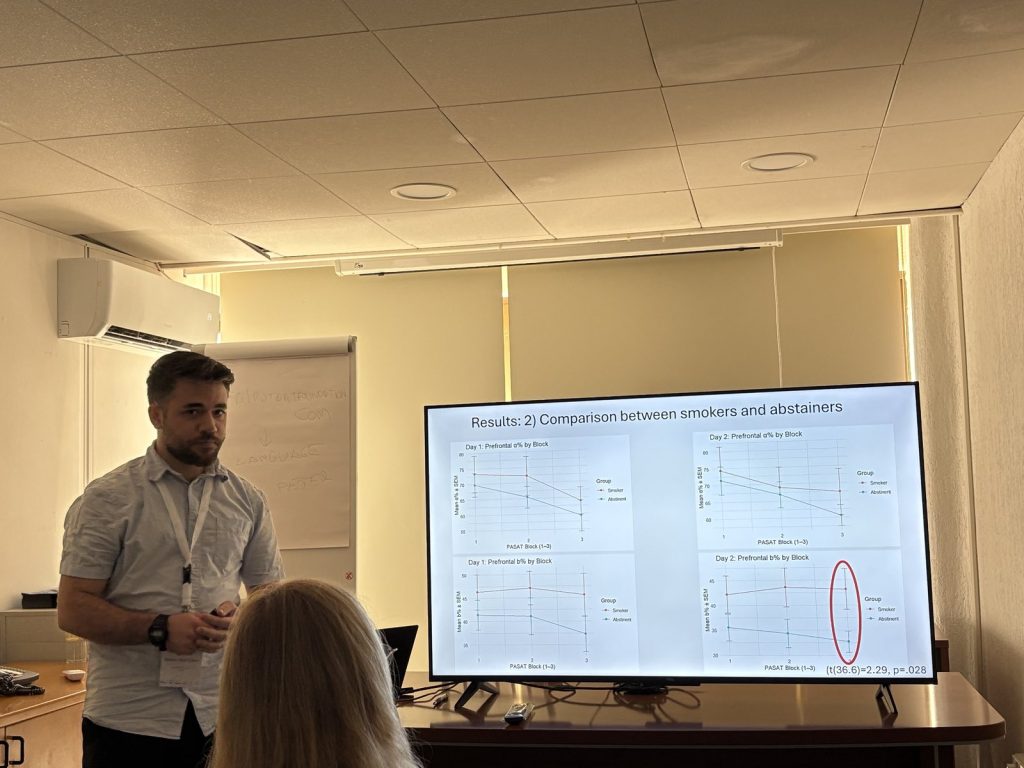
The Translational Neuropharmacology Lab is proud to announce that Dr. Apostolakis delivered a compelling presentation at the 19th European Congress of Psychology, held July 1-4, 2025, in Paphos, Cyprus. His research presentation, “Stress biomarkers and emotion regulation difficulties as predictive factors of vulnerability to nicotine addiction relapse,” highlighted groundbreaking findings in the field of smoking cessation science.
Understanding relapse mechanisms remains one of the most pressing challenges in nicotine addiction treatment, with stress-induced relapse representing a primary obstacle to successful long-term cessation. Dr. Apostolakis’s investigation explored the complex relationship between withdrawal-induced stress sensitivity and individual capacity for emotional self-regulation in predicting treatment outcomes.
The research involved a carefully designed two-day experimental study examining adults aged 18-65 during their smoking cessation attempts. Using the Paced Auditory Serial Addition Test (PASAT) as a stress induction paradigm, the team measured participants’ responses both during normal smoking conditions and following 24 hours of nicotine withdrawal. Electroencephalography recordings captured neural stress responses across both conditions, while the Difficulties in Emotion Regulation Scale (DERS) assessed individual differences in emotional coping strategies. Three-month follow-up assessments tracked long-term cessation success.
The study’s central hypothesis predicted that withdrawal would trigger measurable changes in cortical activity—specifically reduced alpha wave activity and elevated beta wave activity in prefrontal brain regions—reflecting heightened stress vulnerability. Additionally, the research tested whether individual differences in emotion regulation capacity would amplify these withdrawal-related stress responses, ultimately predicting relapse likelihood.
This innovative research represents a significant advancement in understanding the neurobiological and psychological factors that contribute to smoking relapse. The findings have important implications for developing personalized treatment approaches that address individual vulnerability profiles. The presentation generated considerable interest among international researchers and underscores the Translational Neuropharmacology Lab’s commitment to addressing critical public health challenges through rigorous scientific investigation.
